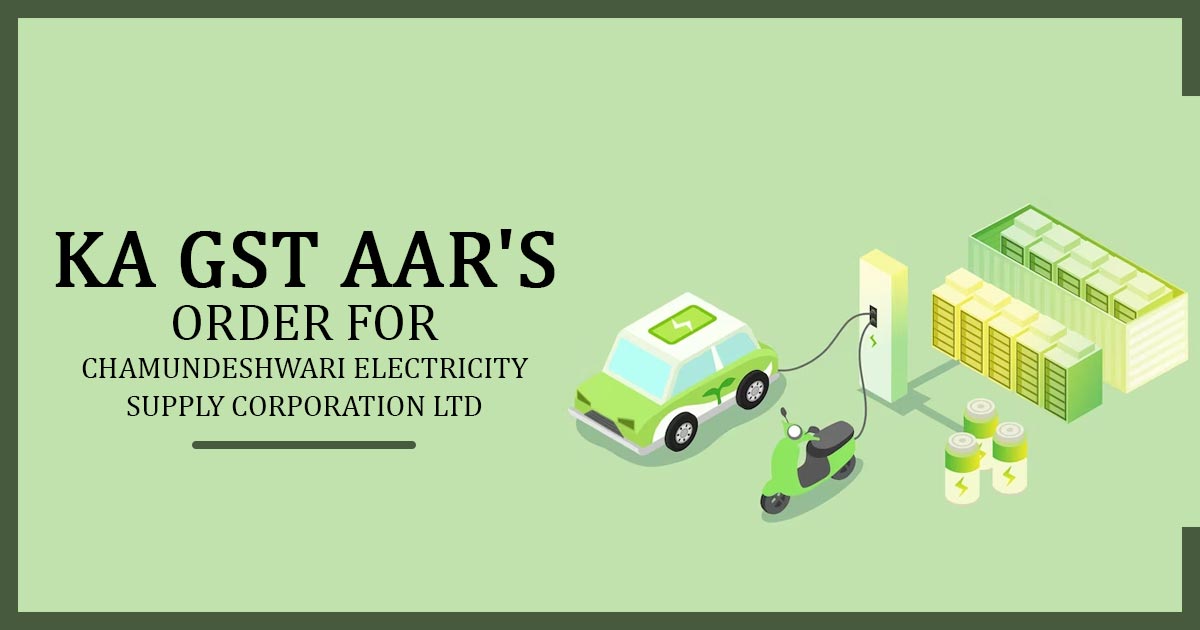
The Karnataka bench of the Authority for Advance Ruling (AAR) recently issued a significant ruling on the applicability of GST for battery charging services provided for electric vehicles.
In their ruling, the bench, comprising M.P. Ravi Prasad and Kriran Reddy T., concluded that a GST rate of 18% will be applicable to battery charging services for electric vehicles.
Their decision was based on the observation that electric vehicles utilize a motor to rotate the wheels that function through the energy produced from the battery, as per this functioning, such vehicles fall under the definition of a motor car. Therefore, charging the batteries of electric vehicles amounts to charging the batteries of motor cars, leading to the classification of this activity under SAC 998714.
The applicant is planning to establish a network of public charging stations (PCS) independently, catering to the charging needs of electric vehicles (EVs), including both two-wheelers and four-wheelers. These charging stations will be powered by electricity, providing an efficient charging service for all electric vehicle users.
To facilitate this service, the applicant will issue tax invoices and collect the “Electric Vehicle Charging Fee,” which consists of two components: energy charges and service charges. The ‘Energy Charge’ will be based on the number of units of energy consumed during the charging process, while the ‘Service Charge’ will encompass the expenses associated with setting up and operating the charging stations.
The applicant expected an early decision on whether the Ministry of Power’s classification of both the ‘supply of electrical energy’ and ‘service charges’ as a ‘supply of service’ would apply in their case.
The AAR concluded that the act of charging electric batteries amounts to a supply service, specifically categorized as a battery Charging Service for motors. Consequently, they ruled that the combined ‘supply of electrical energy’ and ‘service charges’ should indeed be treated as a ‘supply of service’.
The AAR clarified that the ‘supply of electrical energy’ and ‘service charges’ are not to be treated as separate components. The applicant’s activity, involving the charging of electric vehicle batteries, is classified as a supply of service falling under SAC 998714, attracting an 18% GST rate.
Read Also: Orissa HC Orders GST Refund on Claimed Amount Over Inputs of EV
It was further highlighted that the GST collected during this service is treated as output tax. The applicant has the option to offset this output tax against the input tax credit they received on their inputs and input services, in accordance with Sections 16, 86, and 17 of the CGST Act 2017, read with Rules 42 and 43 of the CGST Rules 2017.
| Applicant Name | Chamundeshwari Electricity Supply Corporation Limited |
| GSTIN of the applicant | 29AACCC6636P1Z1 |
| Date | 13.07.2023 |
| Karnataka GST AAR | Read Order |








